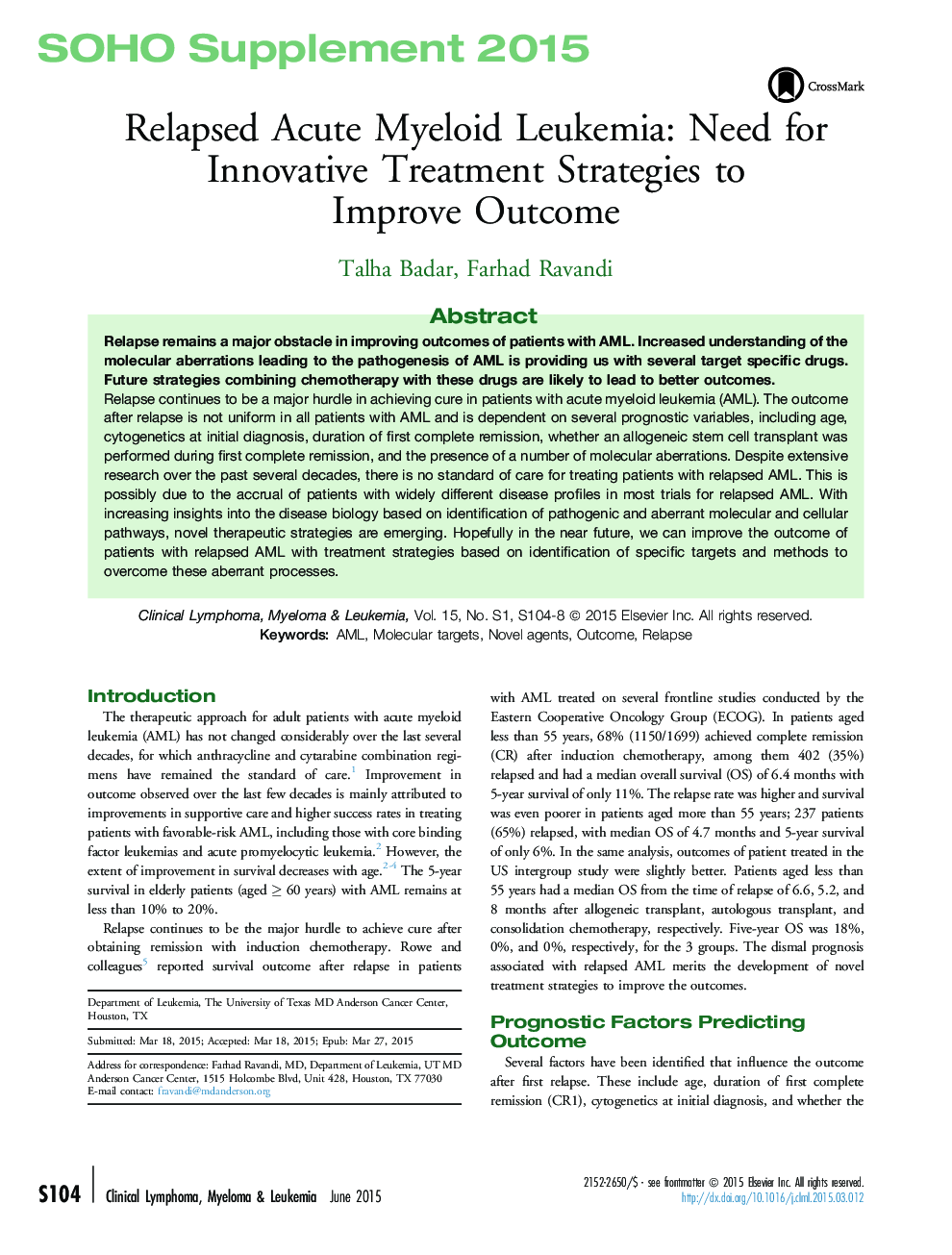| Article ID | Journal | Published Year | Pages | File Type |
|---|---|---|---|---|
| 5883073 | Clinical Lymphoma Myeloma and Leukemia | 2015 | 5 Pages |
Abstract
Relapse continues to be a major hurdle in achieving cure in patients with acute myeloid leukemia (AML). The outcome after relapse is not uniform in all patients with AML and is dependent on several prognostic variables, including age, cytogenetics at initial diagnosis, duration of first complete remission, whether an allogeneic stem cell transplant was performed during first complete remission, and the presence of a number of molecular aberrations. Despite extensive research over the past several decades, there is no standard of care for treating patients with relapsed AML. This is possibly due to the accrual of patients with widely different disease profiles in most trials for relapsed AML. With increasing insights into the disease biology based on identification of pathogenic and aberrant molecular and cellular pathways, novel therapeutic strategies are emerging. Hopefully in the near future, we can improve the outcome of patients with relapsed AML with treatment strategies based on identification of specific targets and methods to overcome these aberrant processes.
Related Topics
Health Sciences
Medicine and Dentistry
Anesthesiology and Pain Medicine
Authors
Talha Badar, Farhad Ravandi,
